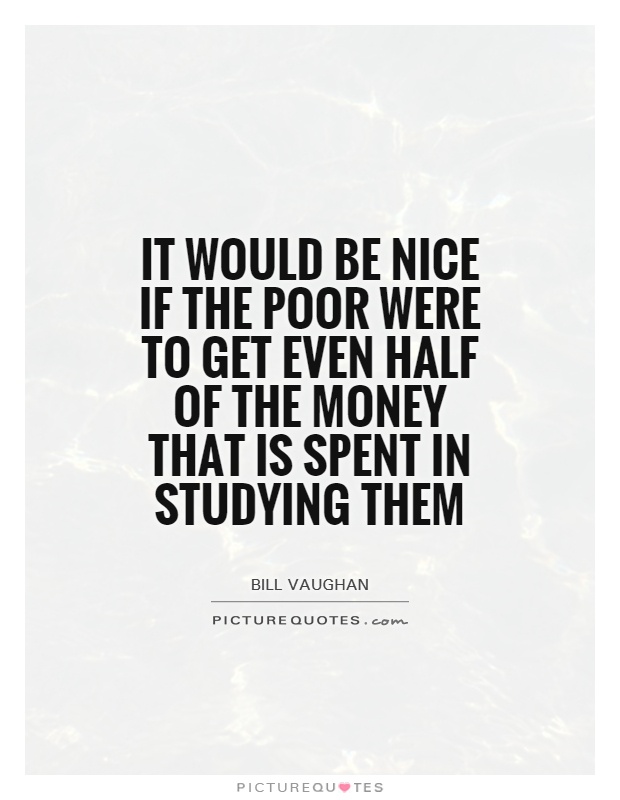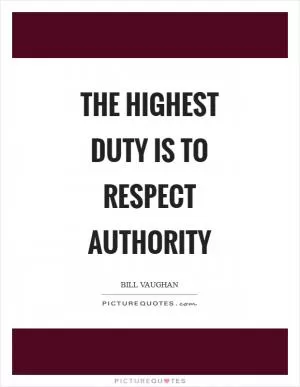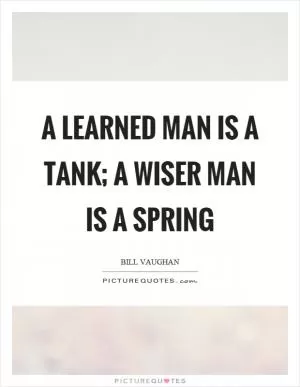It would be nice if the poor were to get even half of the money that is spent in studying them

It would be nice if the poor were to get even half of the money that is spent in studying them
Bill Vaughan, a renowned American columnist and author, once famously said, "It would be nice if the poor were to get even half of the money that is spent in studying them." This statement encapsulates a harsh reality that is often overlooked in society - the disparity between the resources allocated to studying poverty and the actual support provided to those living in poverty.In today's world, there is a significant amount of funding and research dedicated to studying poverty and its effects on society. Governments, non-profit organizations, and academic institutions invest millions of dollars each year in conducting studies, surveys, and research projects aimed at understanding the root causes of poverty and developing strategies to alleviate it. While this research is undoubtedly important for informing policy decisions and shaping public discourse on poverty, it raises the question of whether the resources allocated to studying poverty are being effectively utilized to address the needs of those living in poverty.
The reality is that many individuals and families living in poverty do not have access to the basic necessities of life, such as food, shelter, and healthcare. They struggle to make ends meet on a daily basis, facing barriers to education, employment, and social services that perpetuate their cycle of poverty. Despite the wealth of research and data available on poverty, the actual impact on the lives of the poor remains limited, as the resources allocated to studying poverty often do not translate into tangible support for those in need.












 Friendship Quotes
Friendship Quotes Love Quotes
Love Quotes Life Quotes
Life Quotes Funny Quotes
Funny Quotes Motivational Quotes
Motivational Quotes Inspirational Quotes
Inspirational Quotes